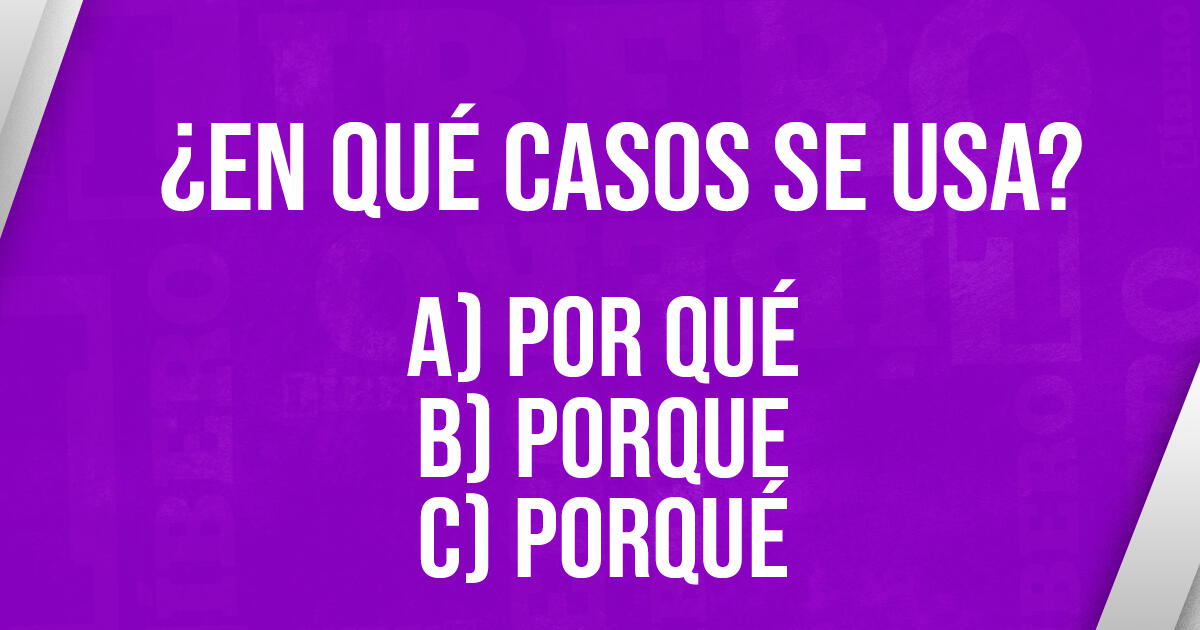The citizens of each Latin American country have their own customs that characterize them, as they have a very particular way of communicating and this could generate errors in spelling or grammar. In the face of this, the RAE exists to clarify doubts.
The Royal Spanish Academy (RAE) is one of the institutions created to clear up these 'doubts' and regulate speech appropriately. That is why today we are going to show you the correct way to write and use three words: 'por qué', 'porque' and 'porqué'.

YOU CAN SEE: "Delante de mí" or "Delante mía": Which of the two expressions is correct according to the RAE?
On social networks, thousands of users expressed their doubts about how to write the word 'por qué', 'porque' and 'porqué'. Do you know the answer? The RAE will clarify your doubts in seconds.
'Por qué', 'porque' and 'porqué' In what situation is each one used?
When are these three words used? You have only seconds to analyze these three words and know if they are correct or incorrect. If you have doubts, don't worry, we will give you the answer proposed by the RAE.
The correct answer according to the RAE
According to the RAE, these three words sound the same, but they are used in different situations. How so? Here is the answer:
Por qué
It is the sequence formed by the preposition por and the interrogative or exclamatory qué (a tonic word that is written with a diacritical accent to distinguish it from the relative and the conjunction que). Example: Why didn't you come to the party yesterday?
Porque
It is an unstressed conjunction, which is why it is written without an accent. Example: I didn't go to the party because I didn't feel like it.
Porqué
It is a masculine noun that is equivalent to cause, motive, reason, and is written with an accent because it is a stressed word ending in a vowel. Example: I don't understand the reason for your attitude.
If you want to improve your spelling, visit Libero.pe.

